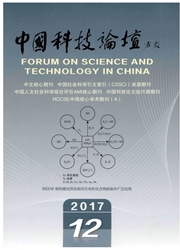

 中文摘要:
中文摘要:
受区域经济发展激励影响.地方政府可能为污染企业俘获而放松规制,现有研究多从实证角度予以证明,本研究根据理论建模。首次理论上探讨了影响规制俘获的要素及其影响方向。研究发现。政府的经济发展需求越强、企业规模越大、污染排放越低、居民的污染治理意识越差,规制俘获越容易发生。一反已有规制能力建设与规制收益负相关的悲观结论,本文进一步的动态研究证明,在克服规制俘获后。规制能力的建设存在正反馈规制激励。这一发现为政府公共管理实践提供了正向理论支持。治理主体多元化更是公民社会运动的基石.生态治理与环境保护是非政府组织最为活跃的领域,但非政府组织在环境治理领域中的环境贡献研究少见发表。本文通过污染排放与污染“消费”的模型识别,证明了非政府组织在环境规制中的贡献。为规制革新提供了理论基础。
 英文摘要:
英文摘要:
Affected by the regional economic development incentives, local governments may be captured by the polluting enterprises and loosen regulation, which have been proved by former empirical studies. According to the theoretical modeling, this study first analy- zes the factors that influence regulatory capture, and their direction theoretically. The study finds that the stronger the government's eco- nomic development desires for, the larger the scale of enterprises is, the lower the pollution emission is, the worse the pollution control consciousness of the residents is, the more likely the regulatory capture happens. Contrary to existing pessimistic conclusion that regula- tory capacity building is negatively correlated with regulatory profit, this paper further proves that there are positive feedbacks in the construction of regulatory capacity after overcoming the regulatory capture based on dynamic studies, which provides a positive theoreti- cal support for government's public administration practices. Moreover, diversification of governance subjects is the footstone of civil so-ciety movement. NGOs play a part most actively in ecological governance and environmental protection areas, but studies related to their contribution in environmental management are rarely published. This paper proves the contribution of NGOs in environmental regulation through the model identification of pollution emission and pollution "consumption", which provides a theoretical basis for regulatory re- form.
 同期刊论文项目
同期刊论文项目
 同项目期刊论文
同项目期刊论文
 期刊信息
期刊信息
